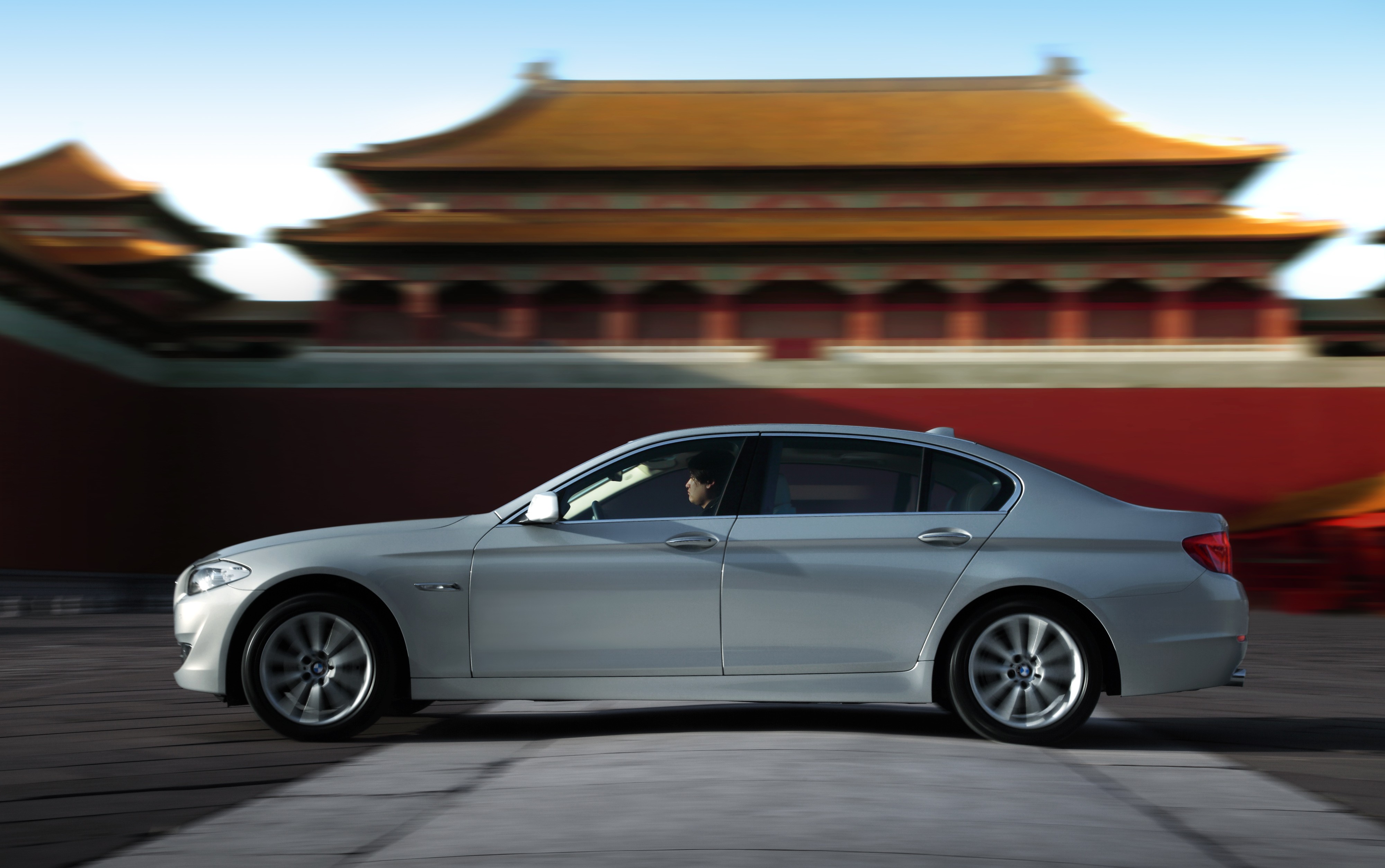BMW And Porsche's China Challenges: A Broader Look At Foreign Automakers' Struggles

Table of Contents
Intense Domestic Competition
The Chinese automotive market is fiercely competitive, and foreign luxury brands like BMW and Porsche are facing unprecedented pressure from domestic manufacturers. This intense competition stems from two key factors: the rise of powerful Chinese auto brands and the inherent complexities of joint venture partnerships.
Rise of Chinese Auto Brands
The meteoric rise of domestic brands like BYD, NIO, and Xpeng is a game-changer. These companies are not just offering competitive pricing; they are also leveraging advanced technologies and tapping into strong nationalistic sentiment.
-
Aggressive pricing strategies: Domestic brands are aggressively undercutting established luxury marques, making premium vehicles more accessible to a wider range of Chinese consumers. This price competitiveness directly impacts the profitability of established players like BMW and Porsche.
-
Advanced technology integration: Chinese automakers are rapidly integrating cutting-edge technologies, including autonomous driving features, sophisticated infotainment systems, and advanced connectivity solutions. These features are highly appealing to tech-savvy Chinese consumers, who often prioritize technological innovation over traditional brand prestige.
-
Strong nationalistic sentiment: A growing sense of national pride fuels consumer preference for homegrown brands. This "buy local" sentiment is a significant hurdle for foreign automakers trying to cultivate brand loyalty in the Chinese market. Marketing campaigns often need to address this directly.
Joint Venture Hurdles
Many foreign automakers operate in China through joint ventures with local partners. While this approach offers access to the market and local expertise, it also presents significant challenges.
-
Bureaucratic complexities: Navigating the intricacies of Chinese bureaucracy and regulatory hurdles within joint ventures can be time-consuming and resource-intensive. Obtaining necessary permits and approvals often involves extensive paperwork and navigating complex governmental processes.
-
Potential conflicts of interest: Joint ventures can create conflicts of interest between foreign and domestic partners, particularly regarding decision-making, profit sharing, and long-term strategic direction. These disagreements can hinder innovation and market responsiveness.
-
Limited brand control: Foreign automakers may have limited control over their brand image and marketing strategies within a joint venture structure, potentially leading to inconsistencies in brand messaging and customer experience.
Shifting Consumer Preferences
Beyond the competitive landscape, foreign automakers are also grappling with rapidly shifting consumer preferences in China. The electric vehicle revolution and evolving definitions of luxury are key factors.
Electric Vehicle (EV) Revolution
China is at the forefront of the global EV revolution, and foreign automakers must adapt quickly to stay competitive. The demand for electric vehicles and the necessary charging infrastructure is exploding.
-
Significant investment needed: Foreign automakers need to make substantial investments in EV production facilities, battery technology, and charging infrastructure to meet the growing demand. This represents a considerable financial commitment and a significant shift in existing business models.
-
Agile competition: Chinese EV startups are often more agile and innovative than established foreign automakers, quickly adapting to technological advancements and consumer preferences.
-
Technologically advanced EVs: Chinese consumers prioritize technologically advanced EVs with strong connectivity features, advanced driver-assistance systems (ADAS), and seamless integration with mobile applications.
Changing Luxury Definitions
The definition of luxury is evolving in China, especially amongst younger consumers. Traditional notions of brand prestige are being challenged by a new generation's priorities.
-
Emphasis on technological innovation: Younger Chinese consumers prioritize technological innovation and personalized experiences over traditional markers of luxury. This means offering cutting-edge features and customized services.
-
Sustainability and environmental consciousness: There's a growing demand for sustainable and environmentally friendly vehicles, placing pressure on foreign automakers to offer greener options.
-
Emotional connection and brand storytelling: Building an emotional connection with consumers through compelling brand storytelling and targeted marketing is crucial for success.
Regulatory and Political Landscape
The regulatory and political landscape in China significantly impacts the automotive industry. Foreign automakers must carefully navigate government regulations, tariffs, and potential geopolitical factors.
Government Regulations and Tariffs
The Chinese government plays a crucial role in shaping the automotive industry. Regulations, tariffs, and market access policies can significantly influence business operations.
-
Bureaucratic processes: Navigating complex bureaucratic processes and obtaining necessary permits for manufacturing, sales, and distribution is a significant challenge.
-
Fluctuating tariffs: Foreign automakers must contend with fluctuating tariffs and import duties that can significantly impact profitability and pricing strategies.
-
Evolving regulations: The regulatory environment is constantly evolving, demanding adaptability and proactive monitoring of policy changes.
Geopolitical Factors
Rising geopolitical tensions between China and other countries can create uncertainty and disrupt business operations.
-
Trade disputes and sanctions: Trade disputes and potential sanctions can negatively impact supply chains, manufacturing operations, and market access.
-
Supply chain disruptions: Geopolitical instability can lead to supply chain disruptions, making it difficult to secure necessary components and materials.
-
Impact on brand reputation: Geopolitical events can impact brand reputation and consumer sentiment, requiring careful management of public relations and brand messaging.
Conclusion
The Chinese automotive market presents significant challenges for foreign automakers like BMW and Porsche. Intense domestic competition, shifting consumer preferences, and a complex regulatory landscape demand strategic adaptability and significant investment. Successfully navigating these hurdles requires a deep understanding of the local market, a commitment to innovation, and a long-term perspective. To thrive in this dynamic environment, foreign brands must embrace localization strategies, prioritize technological advancements, and build strong relationships with Chinese consumers and partners. Ignoring these challenges will only result in further struggles for foreign automakers in China. Understanding these complexities is crucial for any company aiming to succeed in the competitive world of BMW and Porsche's China Challenges. Addressing these BMW and Porsche's China Challenges head-on is key to long-term success in this vital market.

Featured Posts
-
 Thunder Over Louisville 2024 Cancelled Due To Severe Ohio River Flooding
Apr 30, 2025
Thunder Over Louisville 2024 Cancelled Due To Severe Ohio River Flooding
Apr 30, 2025 -
 Estevao Enjoo E Substituicao Em Jogo Do Palmeiras Em Altitude
Apr 30, 2025
Estevao Enjoo E Substituicao Em Jogo Do Palmeiras Em Altitude
Apr 30, 2025 -
 Tiesa Apie X Failus Aktoriai Ir Ju Sudetingi Santykiai
Apr 30, 2025
Tiesa Apie X Failus Aktoriai Ir Ju Sudetingi Santykiai
Apr 30, 2025 -
 Ru Pauls Drag Race Season 17 Episode 9 A Design Challenge Review
Apr 30, 2025
Ru Pauls Drag Race Season 17 Episode 9 A Design Challenge Review
Apr 30, 2025 -
 Life On Our Farm Next Door Amanda Clive And Their Family
Apr 30, 2025
Life On Our Farm Next Door Amanda Clive And Their Family
Apr 30, 2025
